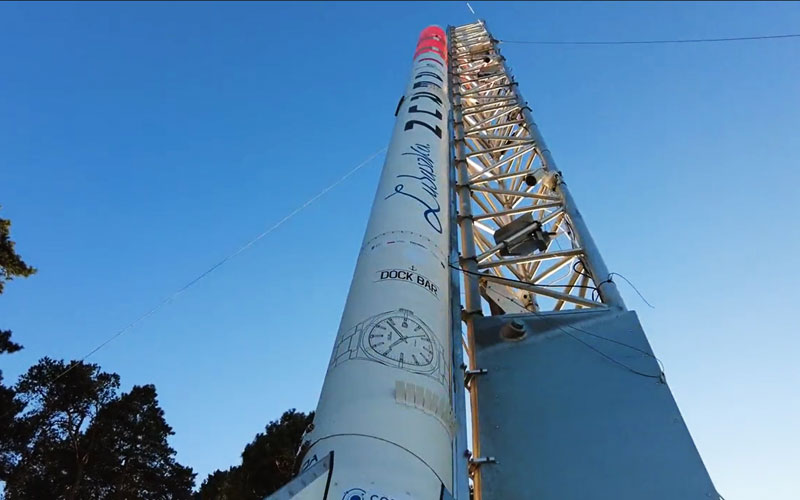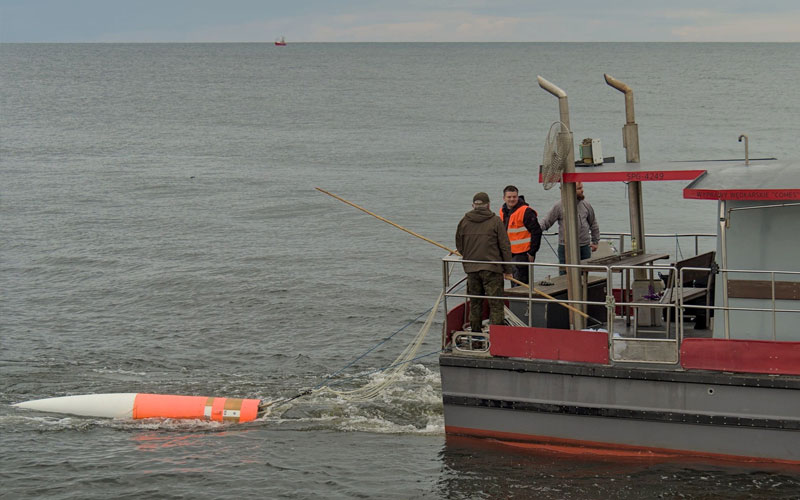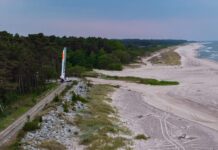
Polish space tech company SpaceForest announced 11 October that the second flight of its suborbital Perun launch system had failed. Despite the failure, the company recovered the rocket and intends to return it to the launchpad.
Perun is a single-stage guided suborbital rocket powered by a hybrid rocket engine. The rocket stands 11.5 metres tall and has a lift-off mass of 970 kilograms. It’s designed to carry payloads of up to 50 kilograms to a maximum altitude of 150 kilometres and return safely back to Earth for payload recovery and reuse.
The launch attempt was conducted from the Polish Air Force Central Training Ground in Ustka on 10 October at 12:10 CEST. After a successful liftoff, the rocket suffered an engine failure 28 seconds into the flight at an altitude of 10 kilometres forcing the company to abort the mission.
After climbing to a maximum altitude of 12 kilomtres, the rocket elements returned to Earth under a parachute, splashing down in the Baltic Sea. The company successfully completed recovery operations following the splashdown.

Despite the failure, the launch did achieve a key objective for SpaceForest. During the maiden flight of Perun on 21 June, the rocket drifted west from its intended flight path due to crosswinds. Working up to the 11 October flight, the company worked on improved control algorithms using its smaller Bigos rockets to test these improvements. Despite strong upper winds during yesterday’s launch, the rocket maintained its set trajectory, validating the improved control algorithms.
In addition to its Bigos and Perun rockets, SpaceForest is also part of the team developing the reusable Themis booster demonstrator, an ArianeGroup-led project. The company is responsible for developing the rocket’s Green Flip Control System, which will perform the “flip” maneuver that orientates the booster for its return to Earth. Initial hop tests of Themis are expected in 2024.



